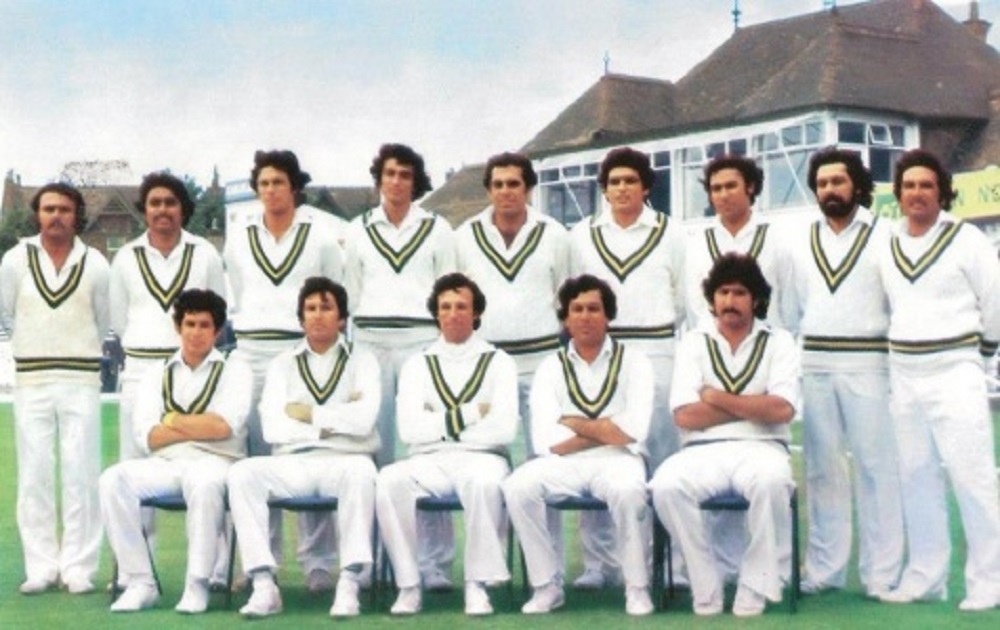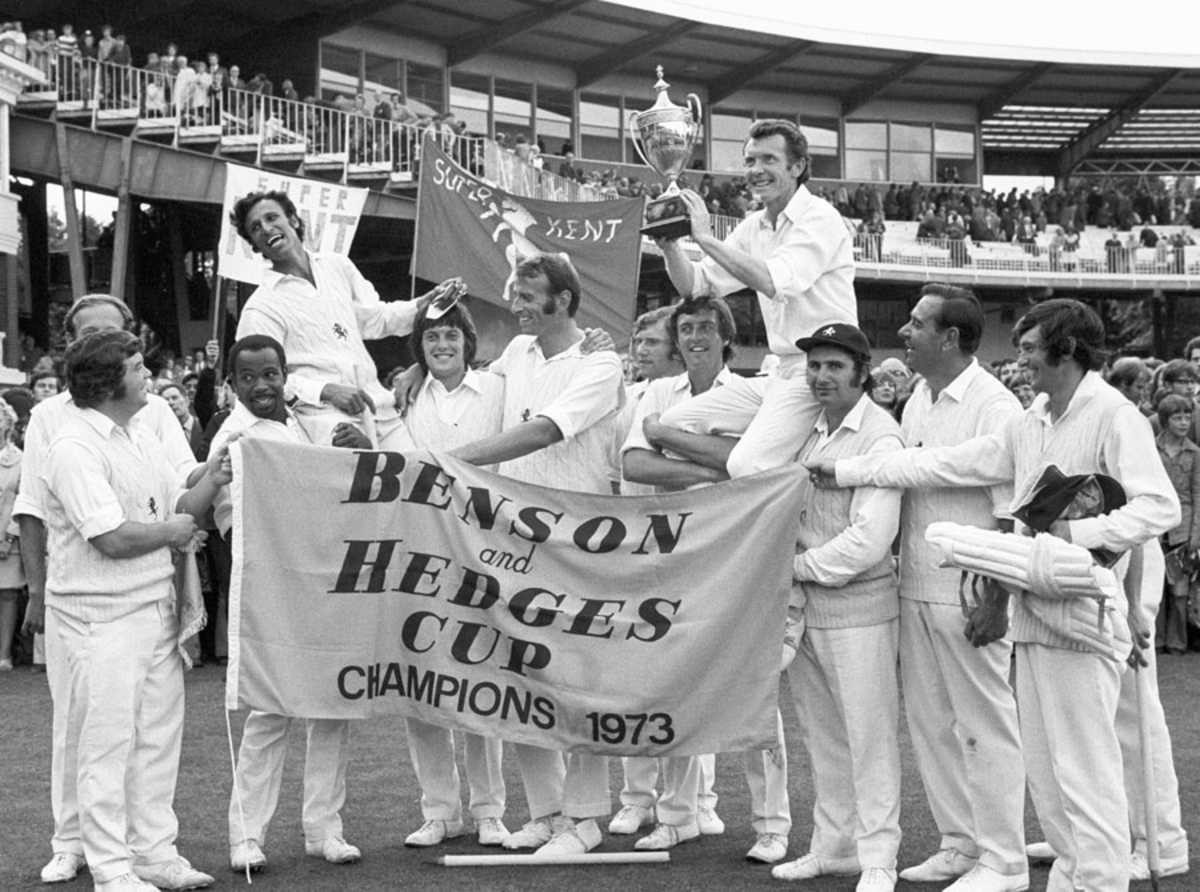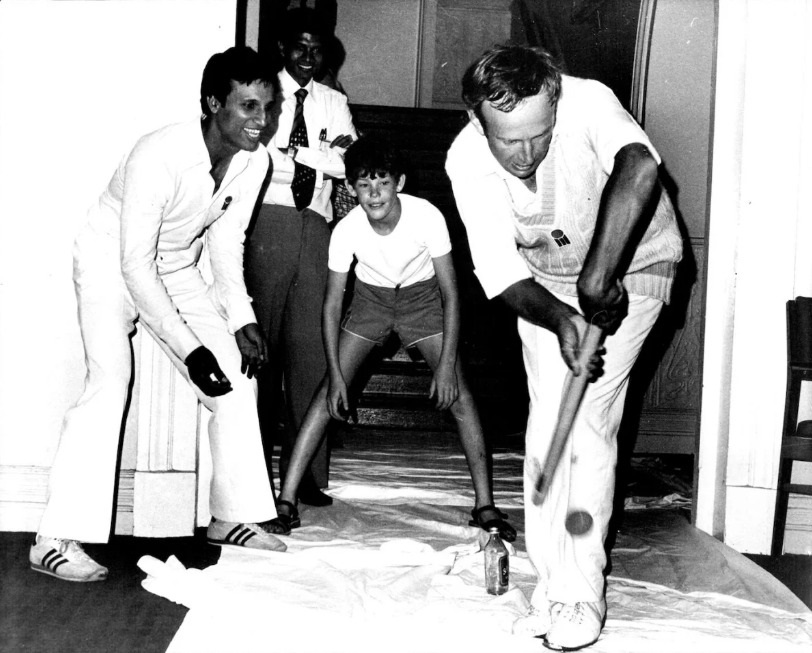Written by: Shiraz Aslam
Posted on: April 04, 2023 |  | 中文
| 中文
Asif Iqbal looking towards the ball after playing a shot in County cricket for Kent against Warwickshire in 1982
In the competitive and arduous realm of cricket, a crisis measures the true mark of a cricketer. When the pressure cooker is on amid “do or die” situations, the cream of the crop steps up to the tall task. For Pakistan, the man topping the list of such resilient warriors is the legendary Asif Iqbal. The Cavalier of Pakistani Cricket showed other cricketing giants how to not only single-handedly lift his team out of turmoil to avert disaster, but often guided his troops to an upset victory.
Born in Hyderabad in 1938, during the pre-partition period, Asif Iqbal Rizvi is a relative of Ghulam Ahmed, a former Indian captain. Through his connection with Ahmed, Iqbal is also a distant relative of the famed Indian tennis star Sania Mirza, Shoaib Malik's wife. Initially chosen as an opening medium-fast swing bowler, he soon transitioned into a batsman or, more appropriately, a batting all-rounder. The allrounder amassed over 29,000 runs and 400 wickets in his professional career of just under 700 matches over the period of 18 years.
A career that lasted sixteen years between 1964 and 1980, the Hyderabad-born batsman played 58 test matches and 10 ODIs. Asif led Pakistan in the 1979 ODI World Cup. In fact, he would have brought home the prestigious trophy in 1979, much before Imran Khan, if it weren’t for a narrow semi-final loss to the mighty West Indies who won the cup that year.

Pakistan squad for the 1979 ODI World Cup. Captain Asif Iqbal sitting in the middle, third from both right and left
Playing against a strong English team in 1967, the former Pakistani skipper proved his mettle as a man of crisis. With seven men back in the pavilion and with only 139 runs on the board, the Green Army was floundering. Defeat was inevitable, but Iqbal and Hanif Muhammad had other plans. Gracing the crease at number 9, Iqbal stitched a remarkable course-altering 130-run partnership with Hanif Muhammad. Partnering the captain in the middle, he shifted the momentum of the Test match and successfully drew the match.
Perhaps his greatest innings, Iqbal’s maiden century against England at the Oval, remains fresh in our memories even after more than five decades. Once again, it was a timely addition to the scoreboard amid an embarrassing batting performance by the Pakistani top and middle order. The nimble-footed Iqbal spearheaded a record-setting ninth-wicket partnership with Intekhab Alam. Their team was on the verge of a follow-on when Alam came to the crease with a meager 65 runs on the board. The duo added a priceless 190 runs that steered the batting order away from deep waters, and established a lead of 31 runs. The record stood for more than three decades. A slew of brilliant cover drives propelled the stylish batsman to a hundred runs, at which point the fans of the Green Army pillaged the Oval. His clever stroke play ended at 146, the highest for any Pakistani batting at number 9. England comfortably chased down the target, but Iqbal had saved his squad from a humiliating defeat.

Asif's (on shoulders in left side) teammates at Kent hoisted him on their shoulders after his heroics in the Benson and Hedges Cup, 1973
Brian Close, the skipper of the opposing team, was understandably moved and impressed by the Herculean comeback effort of Asif Iqbal. Close termed the sensational knock “The showcase of the season.” In hindsight, the former captain was not far from the truth, as Iqbal personified class and epitomized excellence in that important clash.
These were just two examples of his brilliance as a batsman of crisis. The underrated Iqbal faithfully and loyally served his team throughout his career, as he rescued his team countless times from hitting rock bottom. Most of his twelve centuries in Test came during high-pressure contests, when the chips were down for his team. Even when he wasn’t at the forefront of the rescue mission, he lent a valuable helping hand. Javed Miandad’s fantastic debut knock of 163 runs owed its quality partly to Asif Iqbal, the other person at the crease. His unbeaten 166 is almost always forgotten in the discussion of Miandad’s history-making performance. The seasoned veteran in Iqbal was quick to offer the younger Miandad valuable morsels of advice in between overs, when they shared the crease.
Iqbal’s contributions to the sport were not limited to the playing field. On the cricket ground, he was “a magician at work,” but off the field, the educated sportsman was a righteous and polite person that encouraged, trained, and inspired countless future giants. In 1977, he was the spokesman for a group of senior players who requested improved financial contracts from the board. The medium-pace bowler was also the backbone of the Cricketers Benefit Fund Series (CBFS) that put Sharjah on the cricket map. The rest, as they say, is history, because the city became a premier cricket destination for most Pakistan vs. India test matches.

Asif Iqbal, James Packer and Derek Underwood enjoying hallway cricket during the World Series Cricket in 1978
Not hailed universally with the same vigor as many of his other fellow cricketers like Miandad and Hanif Muhammad, the underrated Asif Iqbal holds the prestigious and deserving status of the “Cavalier of Pakistani Cricket.”
You may also like: